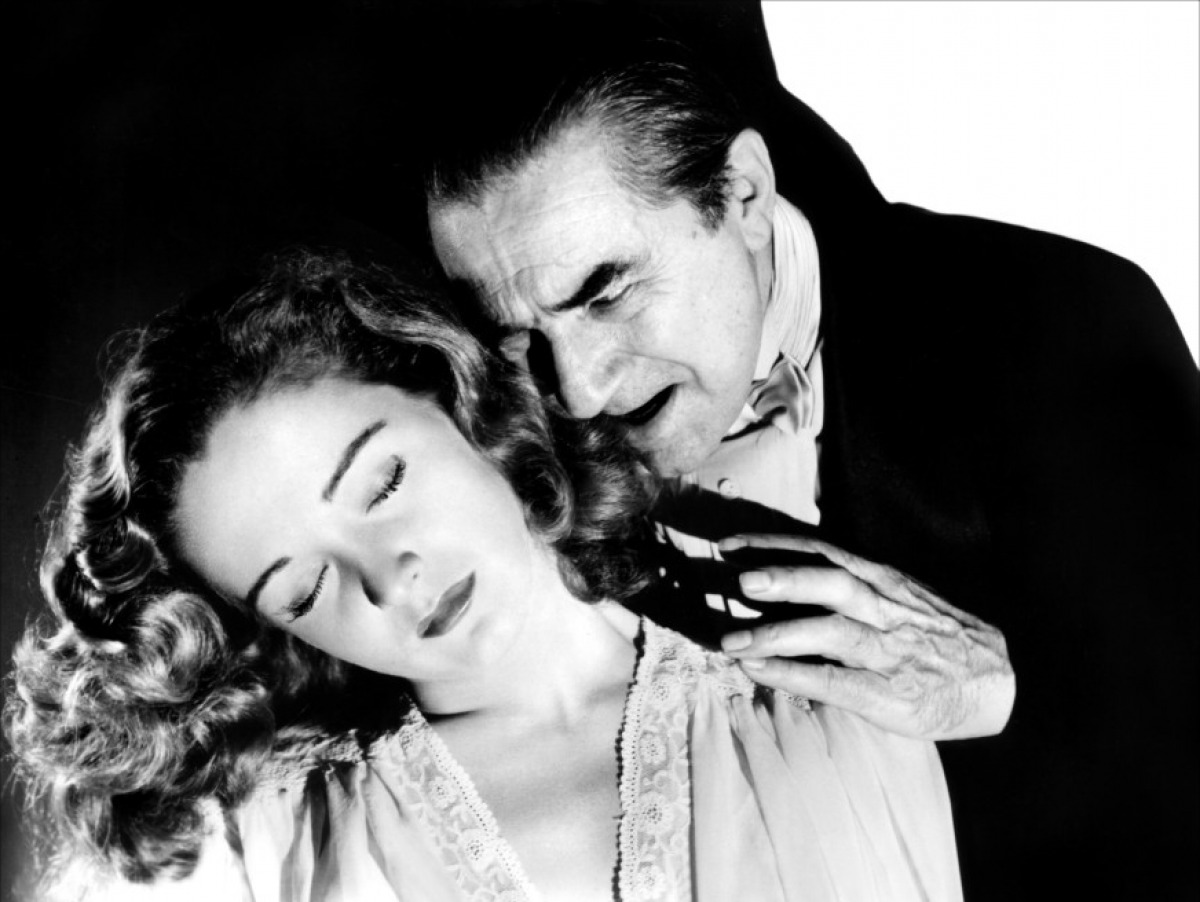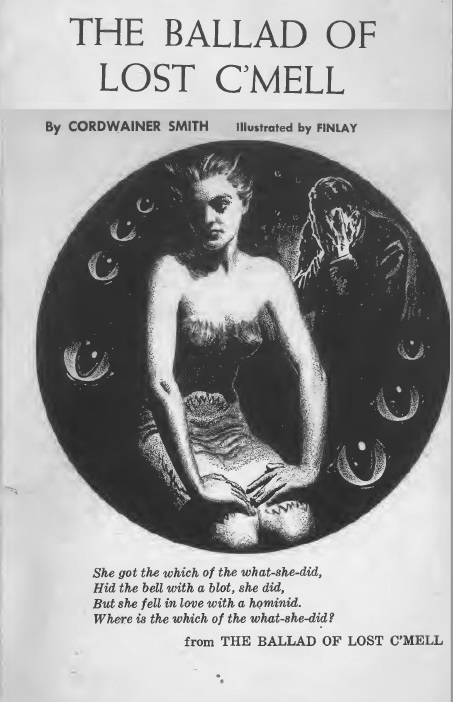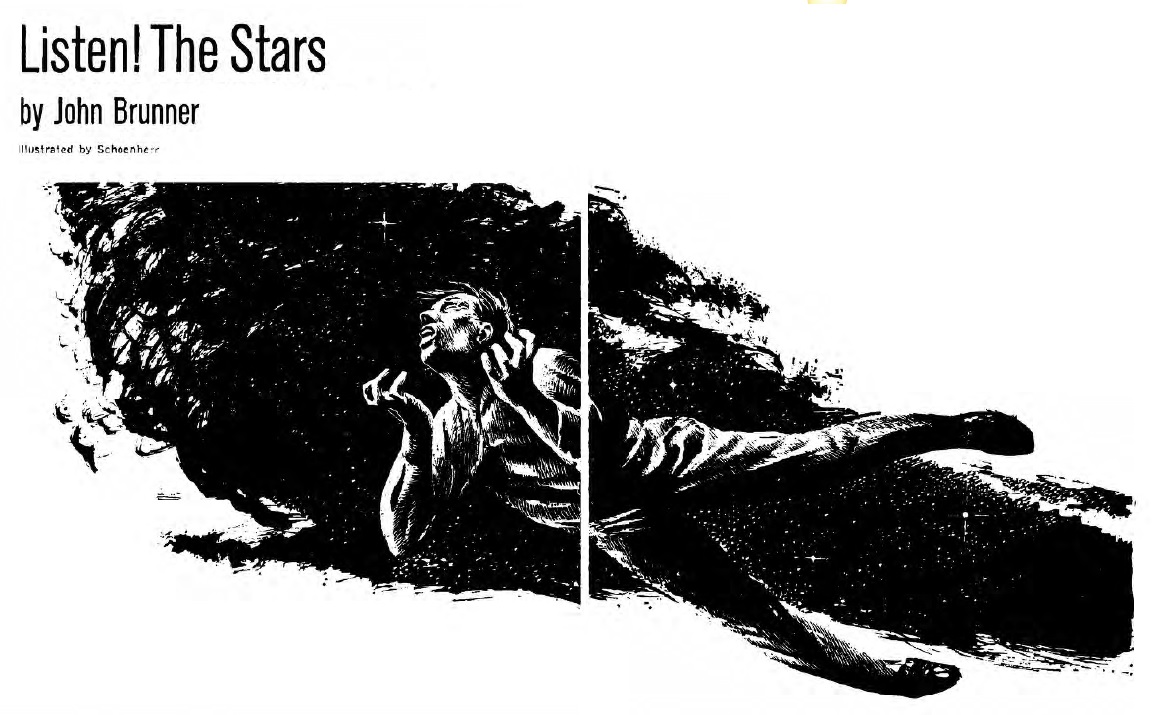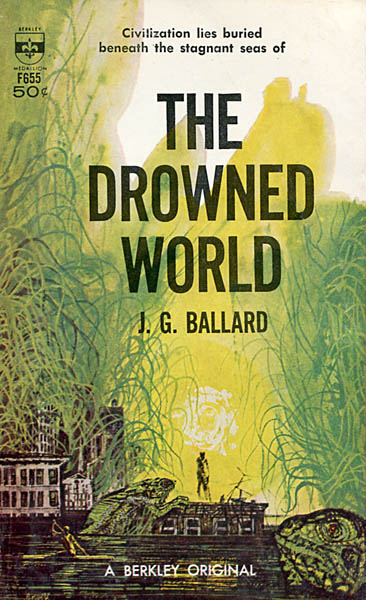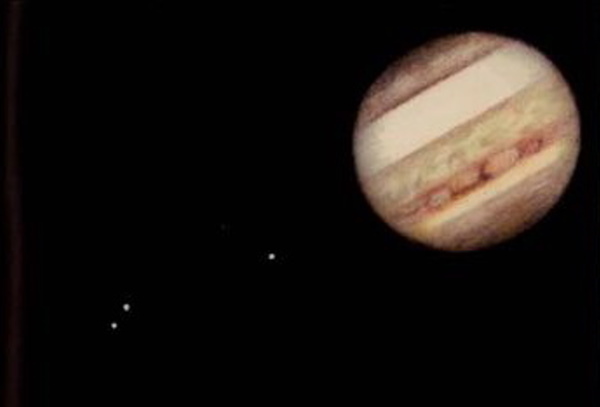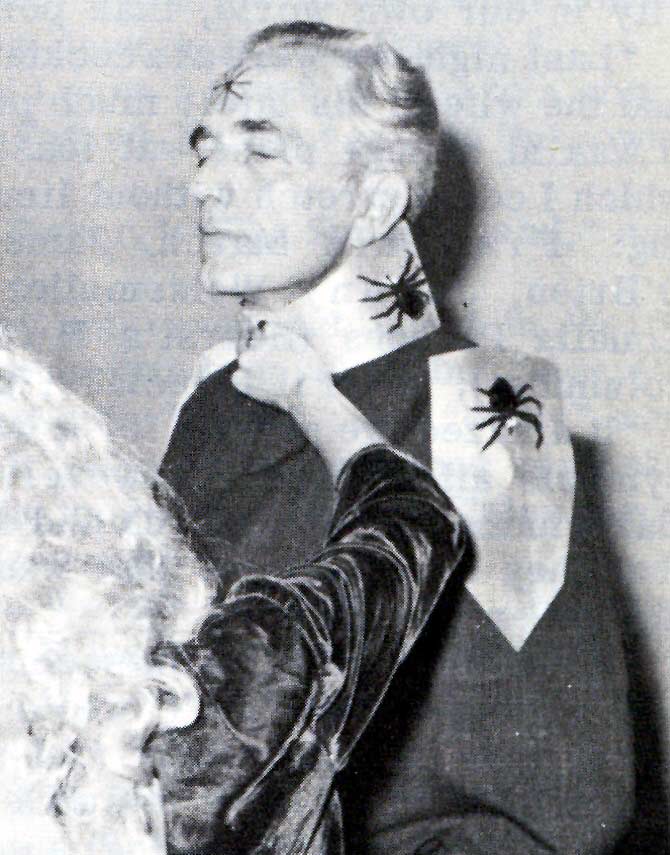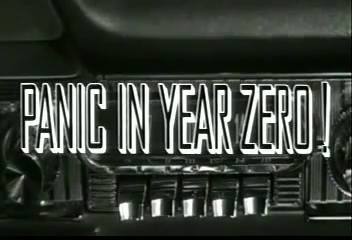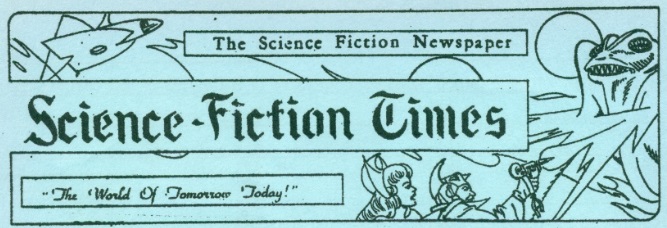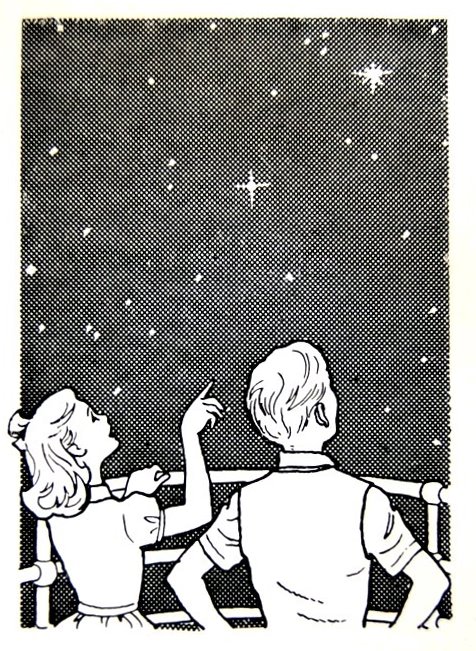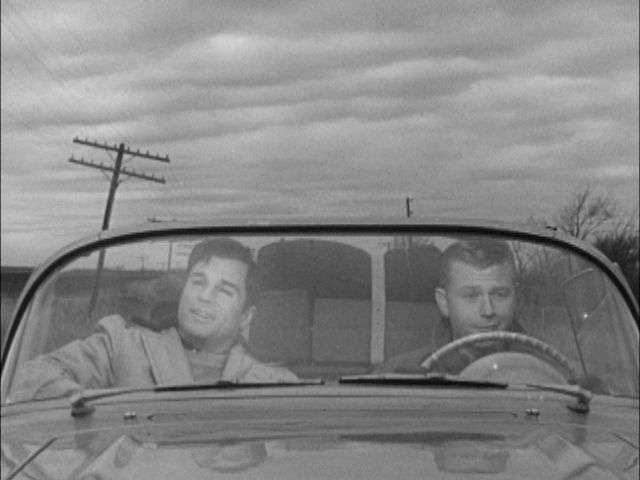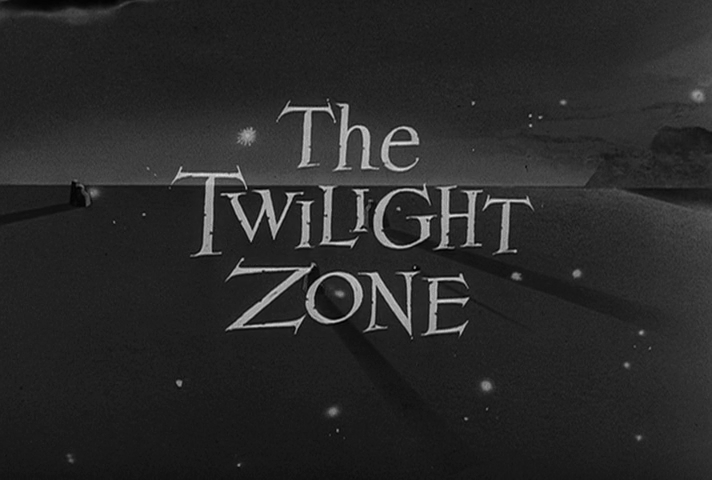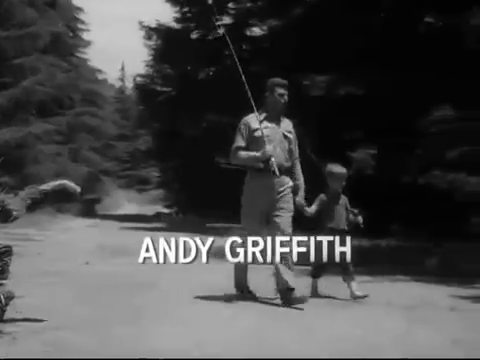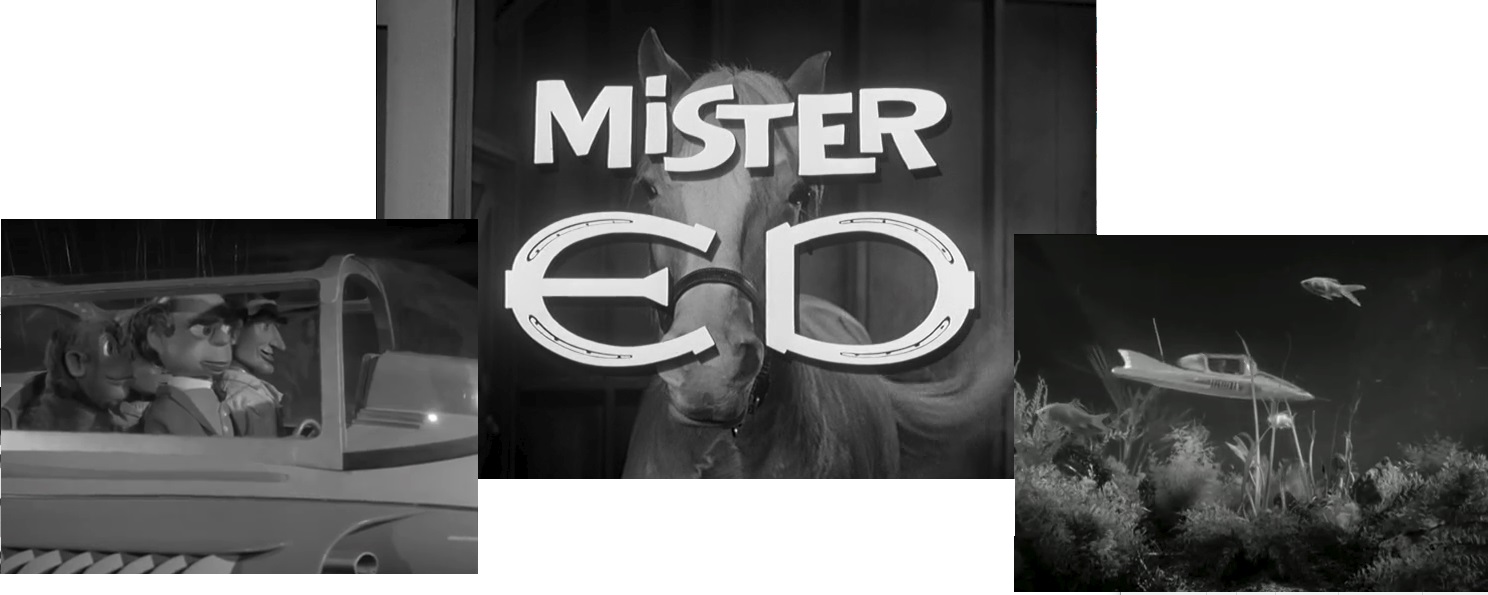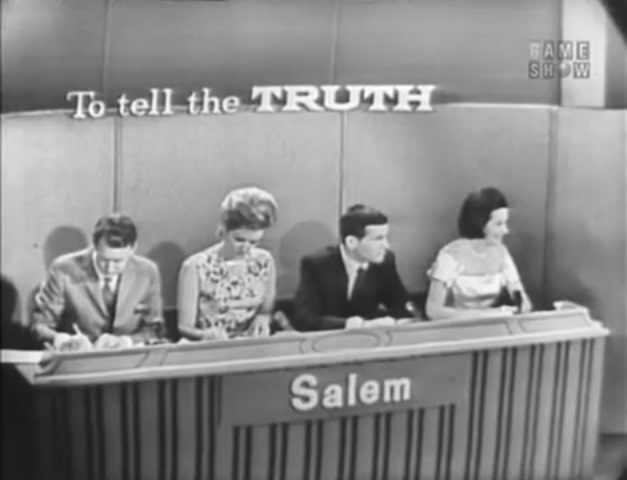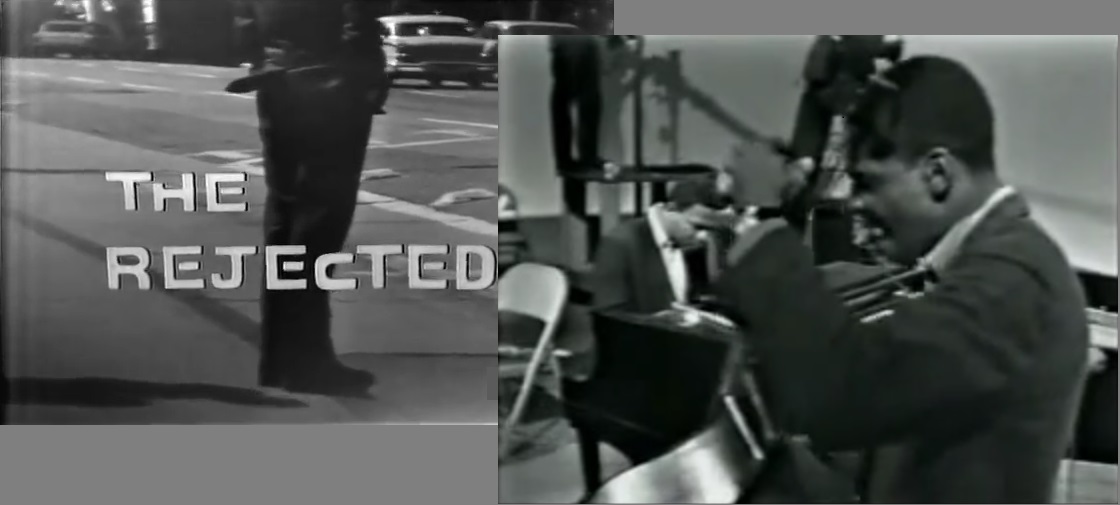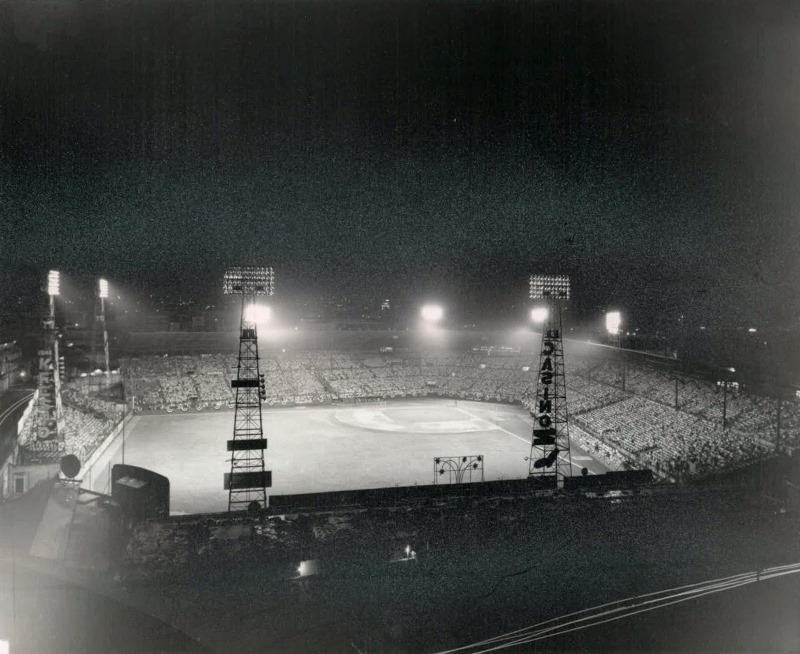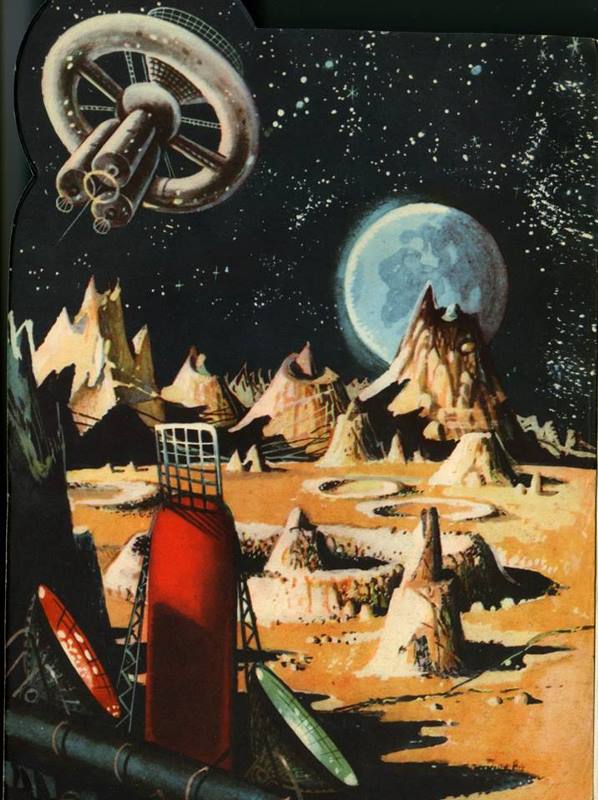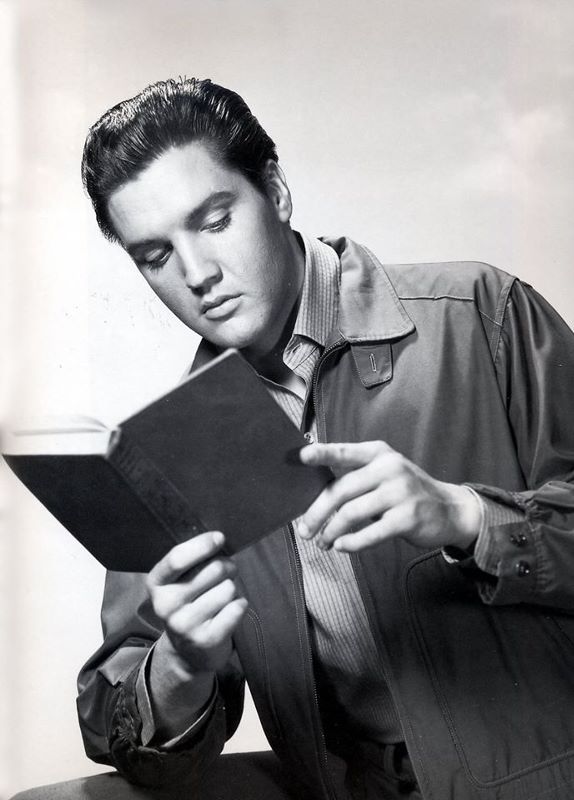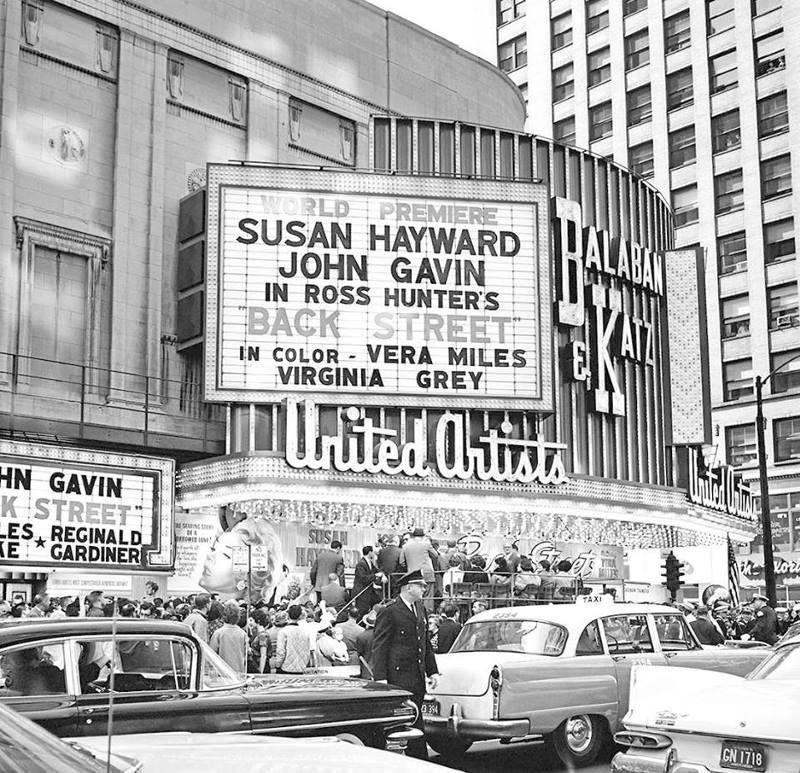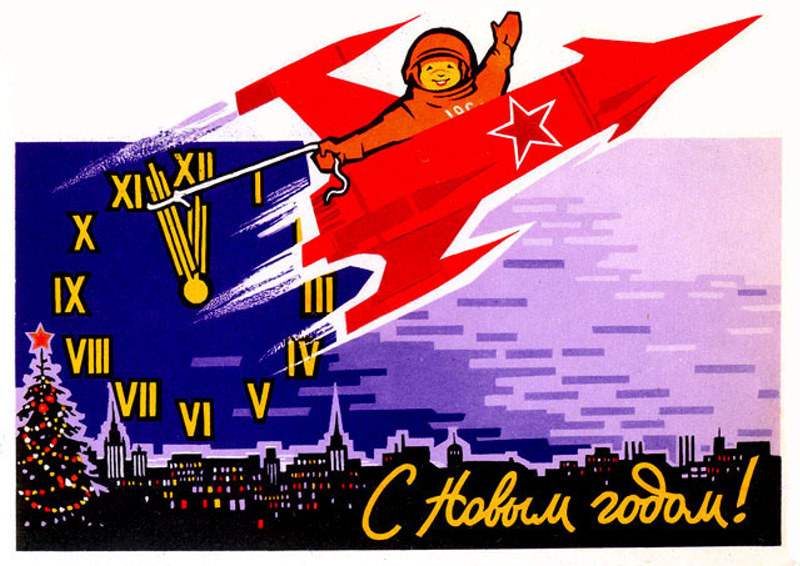
by Gideon Marcus
At long last, it's holiday season again—and that means offering up our choices for the best science fiction of 1968.
These recommendations represent the culmination of a year's work: reading virtually every English-language (and some translated) work of science fiction and fantasy, regardless of where it's published; reviewing them; rating them; nominating them; and finally, assembling this article.
In many ways, 1968 has been a banner year, with plenty to enjoy from a variety of subgenres and moods. You could spend a good many weeks just enjoying the best of what this rather fraught year had to offer.
And after the last 363 days you've had to endure, haven't you earned a break?
——
Best Poetry
——
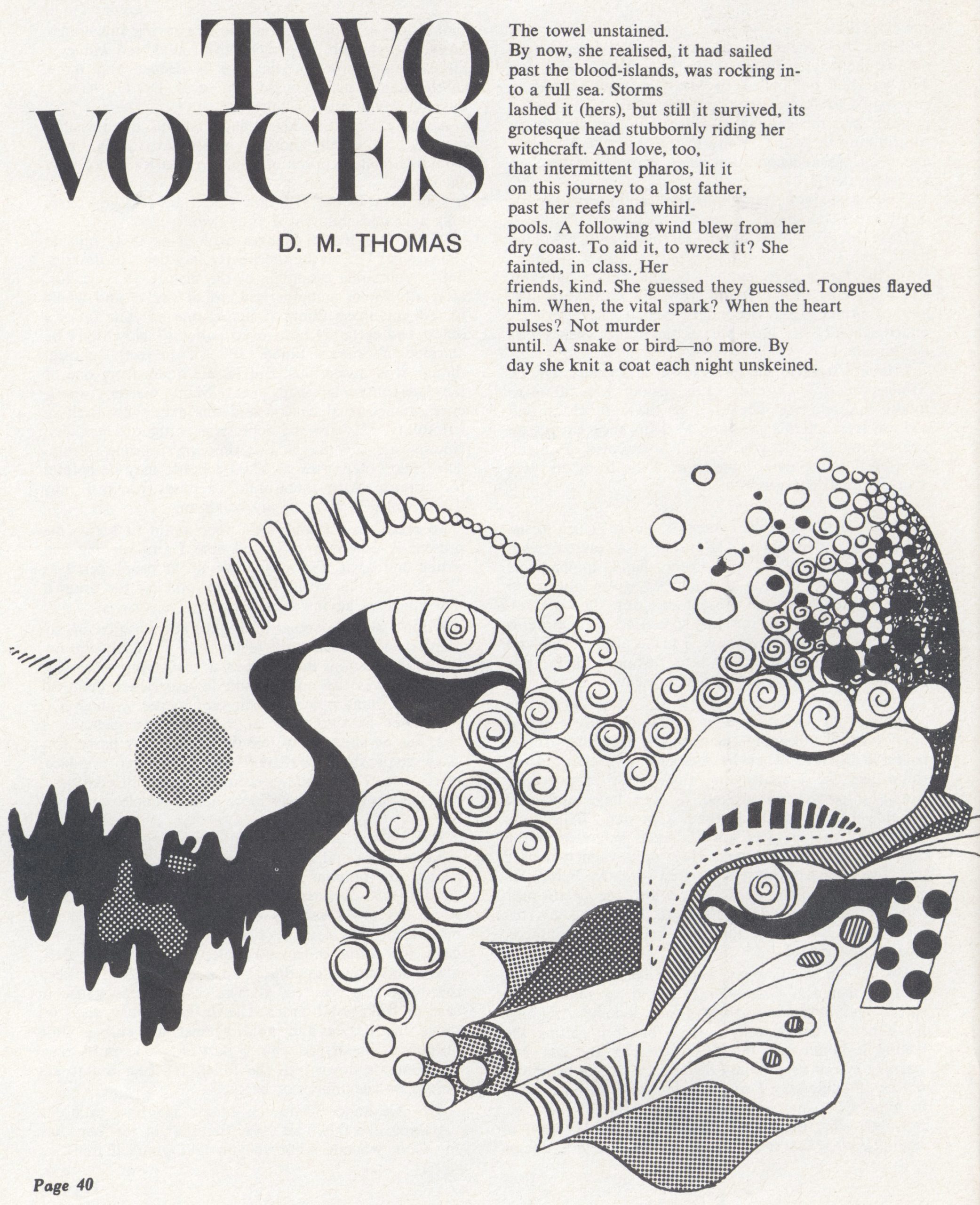
Report On A Supermarket, by Michael Hamburger
Dance Music for a Gone Planet, by Sonya Dorman
Two Voices, by D. M. Thomas
Instructions for Visiting Earth, by Christopher Logue
–
Poetry is the most subjective of the literary arts, so we won't offer a "Best". Instead, here is a nice cross-section of pieces we found moving. And remember that a lot of the best stuff can be found in the fanzines, so don't restrict yourself to the pros!
——
Best Vignettes (1-8 pages)
——

Sublimation World, by John Sladek
If you're a fan (or not a fan) of J. G. Ballard, then you must read "Sublimation World". It's an in joke, but one whose time has come.
ㅤ
Crazy Annaoj, by Fritz Leiber
A galaxy-spanning romance that you will fall in love with.
I Have My Vigil, by Harry Harrison
A poignant who, or what, am I story.
Segregationist, by Isaac Asimov
Organ transplants and artificial organs are the topic of the day, and this story explores the concept most fully.
Honorable Mention
The Deceivers, by Larry Niven
The Moving Finger Types, by Henry Slesar
The Tell-Tale Heart-Machine, by Brian W. Aldiss
Lib, by Carol Emshwiller
The Story to End All Stories for Harlan Ellison's Anthology Dangerous Visions, by Philip K. Dick
—
From hellish to hilarity, this year's crop of short shorts does not disappoint.
——
Best Short Stories (9-19 pages)
——

Wednesday, Noon, by Ted White
The Rapture comes to New York—time for dancing in the streets.
ㅤ
The Two Best Thieves in Lankhmar, by Fritz Leiber
Fahfrd and The Gray Mouser cross paths with Joanna Russ' Alyx in this sword and sorcererial adventure. What's not to love?
Shattered Like a Glass Goblin, by Harlan Ellison
Harlan's anti-drug polemic, done in horrific, uniquely Harlan style.
Honorable Mention
The Ajeri Diary, by Miriam Allen deFord
The Eye of the Lens, by Langdon Jones
The People Trap, by Robert Sheckley
All the Myriad Ways, by Larry Niven
The Meddler, by Larry Niven
Kyrie, by Poul Anderson
The Dance of the Changer and the Three, by Terry Carr
The Ferryman on the River, by David A. Kyle
One Station of the Way, by Fritz Leiber
The Dead Astronaut, by J. G. Ballard
Here Comes John Henry!, by Ray Russell
–
When you've got a three-way tie for a category, you know it's a good year. Even better when there are ten tales that get Honorable Mention, too. The subject matter is more serious, on the whole, than the vignettes, though the Niven, the Sheckley, and the deFord are not without their amusing qualities.
——
Best Novelettes (20-40 pages)
——

Time Considered As a Helix of Semi-Precious Stones, by Samuel R. Delany
A tale of art, crime, and hepcats in 21st Century New York—a quintessential Chip Delany story.
ㅤ
Total Environment, by Brian W. Aldiss
Inside an Indian city-skyscraper, but it's not the overpopulated Earth story you think it will be…
High Weir, by Samuel R. Delany
The Martians had an unique way of recording history—but unlocking it can destroy the unstable mind…
Honorable Mention
The Wall to End The World, by Vincent King
I See a Man Sitting on a Chair, and the Chair Is Biting His Leg, by Harlan Ellison and Robert Sheckley
There is a Tide, by R. C. FitzPatrick and Leigh Richmond
The Egg of the Glak , by Harvey Jacobs
The Barbarian, by Joanna Russ
Eeeetz Ch, by H. H. Hollis
The Sharing of Flesh, by Poul Anderson
–
A good suite of stuff, although I think the novelette category is not as strong as it has been in previous years. Also, how much you like our picks is strongly dependent on how much you enjoy Delany, who has a distinct flavor (although "High Weir" is the least Delany-ish story I've read by him in a while.)
——
Best Novella (40+ pages)
——

Lines of Power, by Samuel R. Delany
A "Wichita Lineman" of the future tries electrifying a gang of Canadian Luddite hippies. Culture clash ensures.
ㅤ
A Tragedy of Errors, by Poul Anderson
On an imperial planet reverted to savagery, the crew of a crashed starship attempt to effect repairs.
Grimm's Story, by Vernor Vinge
The world of Tu is another world that has become an interstellar backwater, but it is slowly clawing its way back to industrialization—in no small part thanks to Fantastique, the magazine of "contrivance fiction". When an astronomer with a psionic cat is tapped to rescue the one complete set of the magazine from destruction, it turns out far more is at stake.
The Consciousness Machine, by Josephine Saxton
WAWWAR, a psychotherapy machine, heals the mind by providing hallucinatory trips. But in this tale, just who is being healed, and how is the human therapist, who controls WAWAR, involved?
Honorable Mention
Hawk Among the Sparrows, by Dean McLaughlin
Perris Way, by Robert Silverberg
The Custodians, by James H. Schmitz
Grendel, by Larry Niven
I just discovered this terrific story in Niven's Neutron Star, a collection of Known Space stories. This one features Bey Schaeffer, a retired hyperspace pilot who gets entangled in a kidnapping plot. I'm not sure why it didn't get published in a magazine, but it's well worth your time.
–
In contrast to novelettes, the novella category is quite healthy, in part thanks to the rise of the paperback anthology. Lots of hard choices here, and some really excellent work across a range of genres. I'd say the novellas are the most universally SFnal of the pieces this year.
——
Best Novel/Serial
——

Stand on Zanzibar, by John Brunner
An overcrowded, 21st Century Earth depicted with New Wave, psychedelic sensibilities. A huge, unprecedented work.
Picnic on Paradise, by Joanna Russ
Ancient Mediterranean swashbuckler Alyx is now part of a far-future team of troubleshooting adventurers. Somehow, it works.
ㅤ
Rite of Passage, by Alexei Panshin
Young Mia Havero, who lives on a galaxy-faring trade ship, finds herself on a hide-bound, hostile colony world. Can she survive her rite of passage—her trip to the planet?
A Wizard of Earthsea, by Ursula K. LeGuin
The fantastic adventures of Ged, young sorcerer, on LeGuin's island world that has been featured in several stories to date.
Do Androids Dream of Electric Sheep?, by Philip K. Dick
San Fran bounty hunter on a denuded Earth is tasked to kill five androids. What does it mean to be human? What does it meant to live a robotic life?
Honorable Mention
The Jewel in the Skull, by Michael Moorcock
The Swords of Lankhmar, by Fritz Leiber
Synthajoy, by D. G. Compton
The Two Timers, by Bob Shaw
Nova, by Samuel R. Delany
The Spawn of the Death Machine, by Ted White
—
Another great year for paperbacks. In addition to the usual suspects (Delany, Dick, Leiber, Brunner), it's neat to see some newer names hit the charts: Russ, LeGuin, Shaw, White. The field is only getting bigger and better!
——
Best Science Fact
——

Heinlein in Dimension, by Alexei Panshin
The first more-or-less complete analysis of one of the titans of science fiction.
ㅤ
Into the Media Web, by Michael Moorcock
For Your Information: My Friend, the Nautilus, by Willy Ley
Andy Warhol: Portraits, Still Lifes, Events, by Andrew Lugg
Honorable Mention
The Seventh Metal, by Isaac Asimov
Barbarella and the Anxious Frenchman, by Michael Moorcock and Charles Platt
For Your Information: Mission to a Comet, by Willy Ley
If … and When, by Lester del Rey
—
It's nice to see Willy Ley's name ascendant again, and of course, Lexy Panshin earned his Best Fan Writer Hugo this year largely on the strength of his book on Heinlein (originally published serially in fanzines). If the appearance of a piece on Warhol surprises you, read it—after all, why shouldn't art be a cutting edge technology, too?
——
Best Magazine/Collection
——
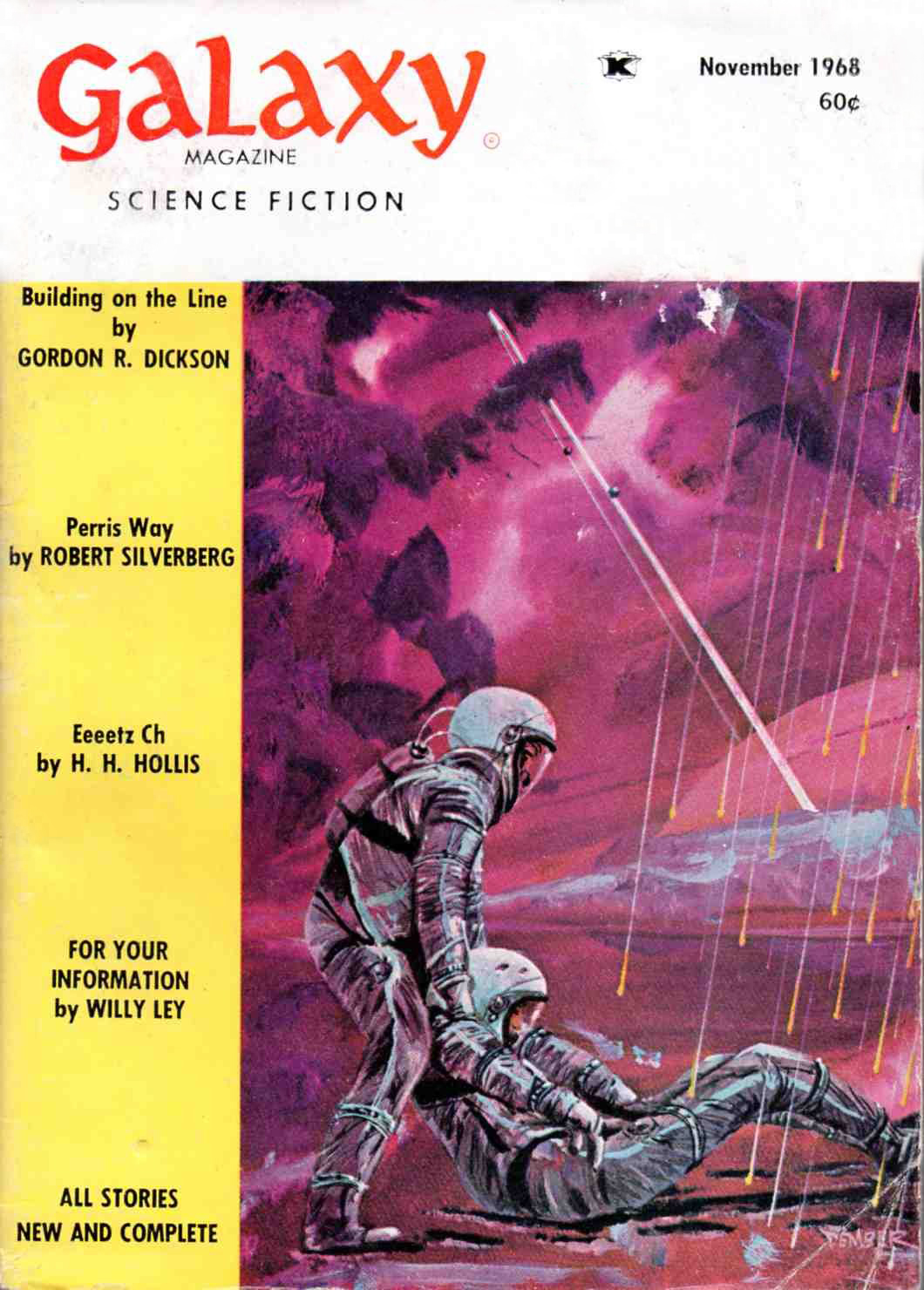
The Farthest Reaches: 3.40 stars, 2 Star nominees (just one anthology)
Galaxy: 3.22 stars, 12 Star nominees (nine 1.5x size issues)
New Writings 11-13: 3.08 stars, 2 Star nominees, (three anthologies)
F&SF: 3.06 stars, 10 Star nominees (12 issues)
IF: 2.96 stars, 2 Star nominees (12 issues)
New Worlds: 2.90 stars, 5 Star nominees (seven issues)
Famous Science Fiction 2.889 stars, 0 Star nominees (four issues)
Analog: 2.75 stars, 3 Star nominees (12 issues)
Amazing: 2.60 stars, 1 Star nominee (six issues)
Orbit 3 and 4: 2.50 stars, 3 Star nominees, (two anthologies)
Fantastic: 2.44 stars, 1 Star nominee (six issues)
Worlds of Fantasy: 2.32 stars, 0 Star nominees (one issue)
Beyond Infinity: 1.46 stars, 0 Star nominees (one issue)
—
Tallying things this way, it looks like Galaxy remains the front-runner. It's certainly the magazine I look forward to the most. Fan favorite and subscription juggernaut Analog is near the bottom of the back, and the Orbits, while they provide some excellent stuff, fare even worse. A bit surprising.
——
Best Publisher
——

Ace: 3 Star nominees
Doubleday: 3 Star nominees
Lancer 1 Star nominee
Paperback Library 1 Star nominee
Parnassus Press 1 Star nominee
No surprises here. Ace puts out 24 books a year just in the Doubles format, not to mention all its single titles. Still, Doubleday brings the goods when it comes to "serious" SF.
——
Best Artist
——

Jeff Jones
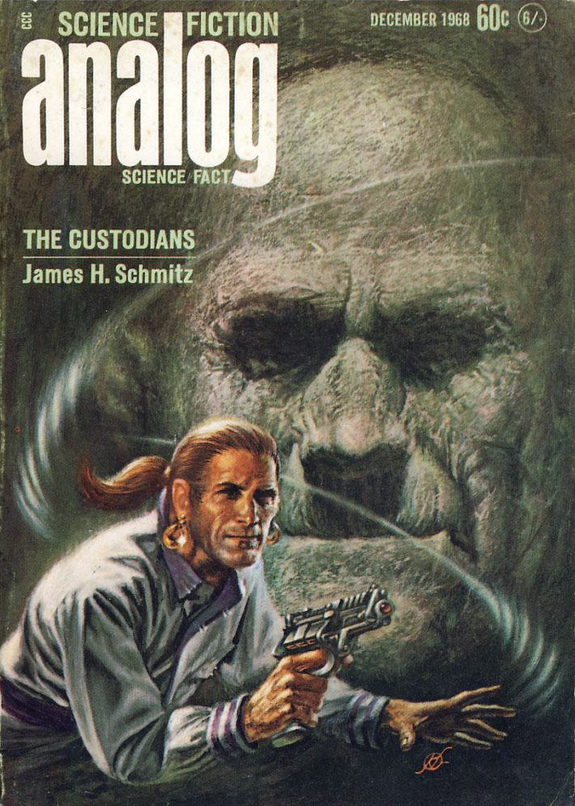
Kelly Freas
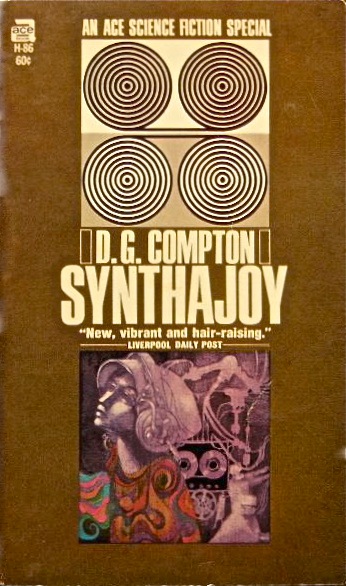
Leo and Diane Dillon
Honorable Mention
Frank Frazetta
Gray Morrow
Russell Fitzgerald
Virgil Finlay
–
Lots of familiar names on the list, but also some new ones, and the first time a woman has been prominent in a while.
——
Best Dramatic Presentation
——

2001: A Space Odyssey, Stanley Kubrik, director

Planet of the Apes, Franklin J. Schaffner, director
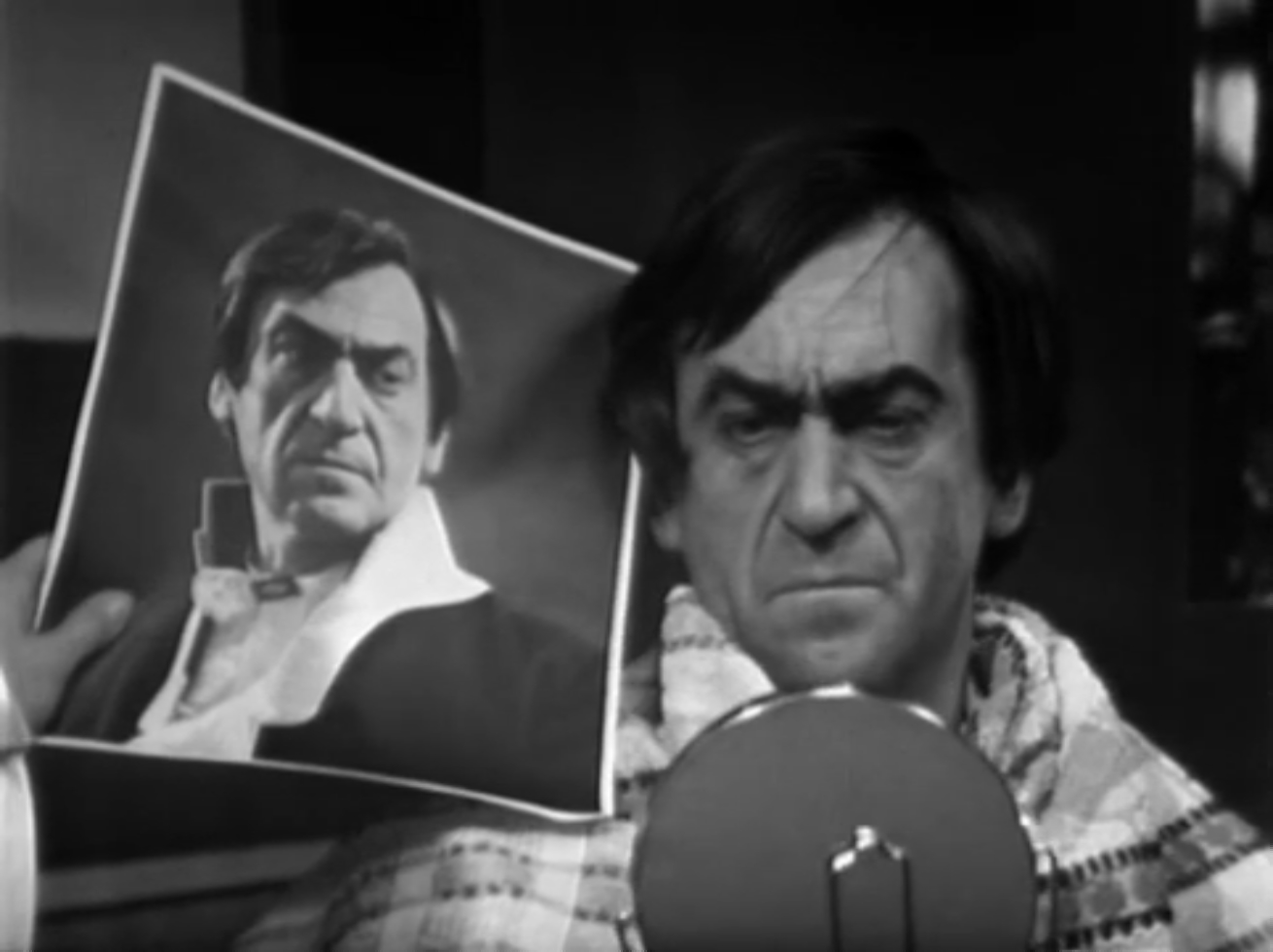
Doctor Who: The Enemy of the World, by David Whitaker

Star Trek: The Tholian Web, by Judy Burns and Chet Richards
Honorable Mention
Hour of the Wolf, by Ingmar Bergman
The Prisoner: Hammer into Anvil, by Roger Woddis
Rosemary's Baby, Roman Polanski, director
Star Trek:Is There in Truth no Beauty?, by Jean Lisette Aroeste
Star Trek: "The Trouble with Tribbles"
Theatre 625: The Year of the Sex Olympics, by Nigel Kneale
Wild in the Streets, Robert Thom, writer; Barry Shear, director
The Witchfinder General, Michael Reeves, director
–
With so much to choose from, the Hugos next year are going to be a mess. The Trek episodes, with the exception of "Tribbles", will be rerun this summer, and most of these movies are still in the cinema. In short, you still have time to appreciate these instant classics!
——
Best Comic Book
——

Deadman

The Trigan Empire

Nick Fury, Agent of SHIELD
Honorable Mention
The Incredible Hulk
The Silver Surfer
Valerian et Laureline
–
Deadman doesn't have a book of his own, but ever since his introduction last year, he has been a National (DC) fan favorite. Or, as fellow traveler Kris puts it:
Deadman is so great. It is like Arnold Drake went:
"So this comic is like The Fugitive…"
"Great"
"…except he's a trapeze artist…"
"Sure"
"…and dead…"
"Erm"
"…well a ghost who can possess people's bodies…"
"what?"
"….where the murderer is trying to get inducted into a Society of Assassins run by an ancient martial artist."
"…….."
——
Best Fanzine
——

Algol
Trumpet
Riverside Quarterly
Science Fiction Times
Amra
–
The winning entry speaks for itself. Trumpet has terrific production values with its pro-style offset printing, but only one issue came out this year. Riverside Quarterly continues to be scholarly and excellent. The new incarnation of Science Fiction Times is the best way to keep up to date on the goings on in the fan world.
——
Best Fan Writer
——
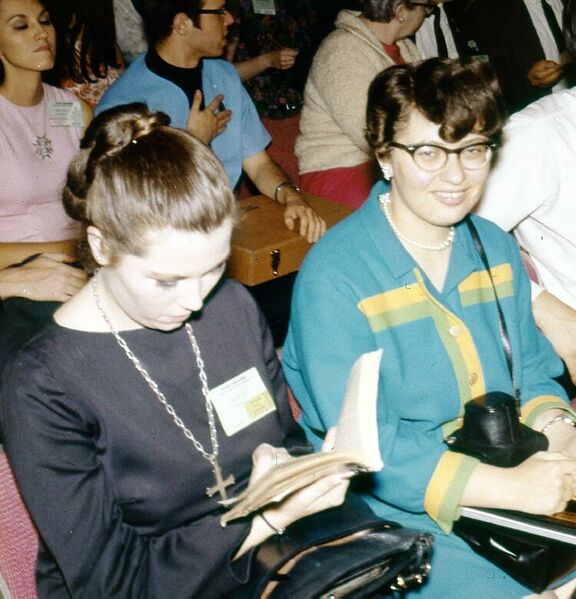
Ruth Berman (on the right)
There are lots of terrific fan writers out there maintaining a myriad of 'zines for our enjoyment. It's difficult to pick just one, so I'm just going to play favorites. I met Ruth this year. She is big in Star Trek fandom, editing the 'zine Inside Star Trek. She also covers conventions, is incredibly literate and sharp, conducting interviews of various luminaries in addition to her writing, and is an all around superfan. I would not be surprised if she has a big pro career ahead of her.
She was also a nominee for Best Fan Writer Hugo this year, so I'm not the only one who loves her!
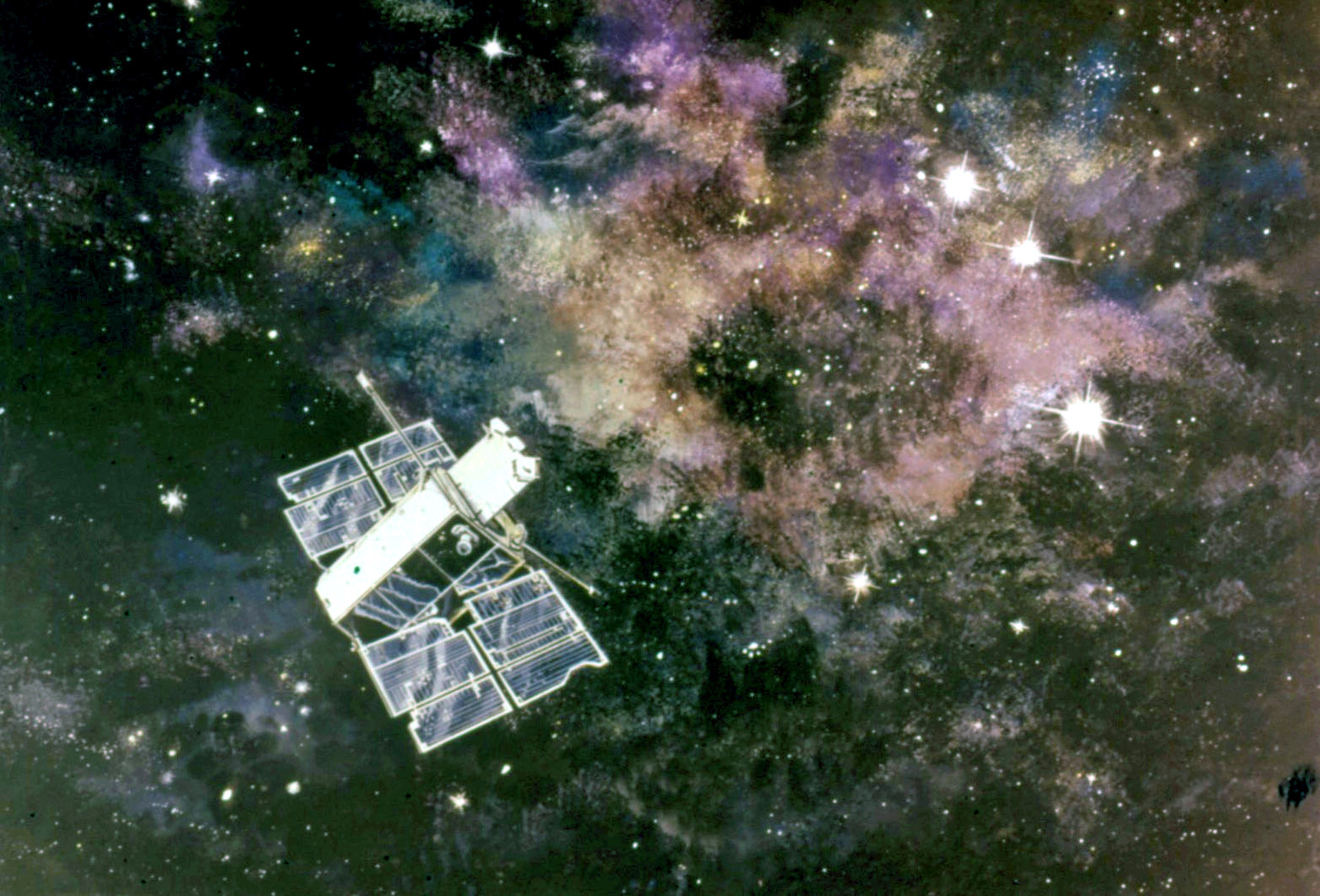
Whew! That's some list. And no rest for the wicked—we're already reading 1969's offerings. But with entries like those above, there's plenty of wind in our sails. Sure, we run into shoals every so often (ahem Piers Anthony, John Norman, Lin Carter) but the great discoveries keep our momentum going.
So enjoy…and let us know which of these you particularly liked!




![[December 26, 1969] A Wreath of Stars (the best science fiction of 1969!)](https://galacticjourney.org/wp-content/uploads/2024/12/691226stars-672x372.jpg)
![[December 30, 1968] Beautiful Downtown Starbank (the 1968 Galactic Stars)](https://galacticjourney.org/wp-content/uploads/2023/12/681230stars-672x372.jpg)

























![[December 24, 1967] Hit Parade '67 (the year's best science fiction)](https://galacticjourney.org/wp-content/uploads/2022/12/671224galaxy-624x372.jpg)
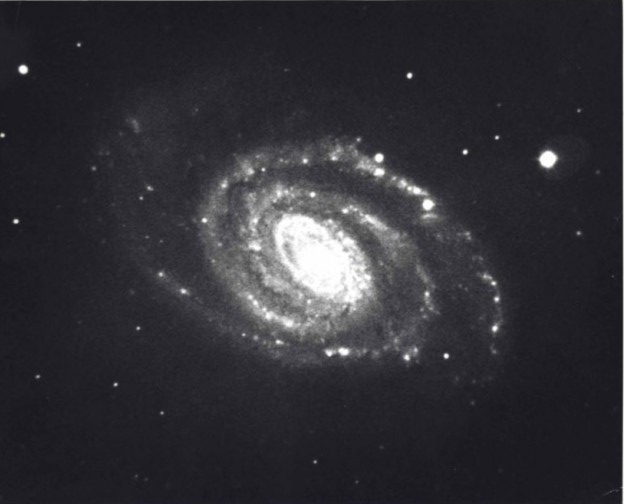
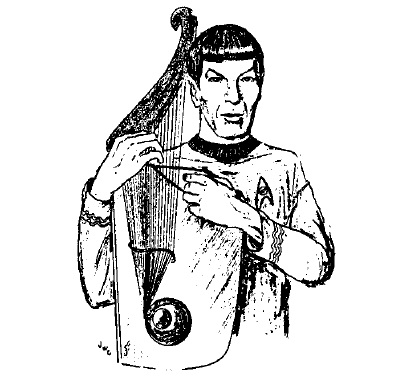
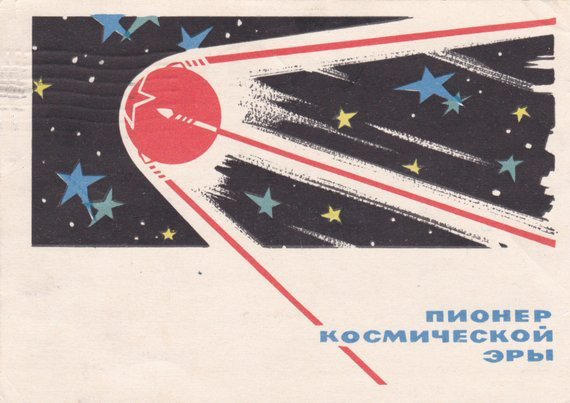

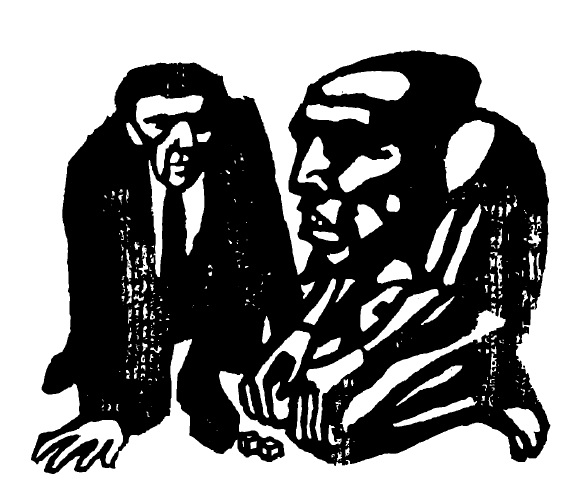
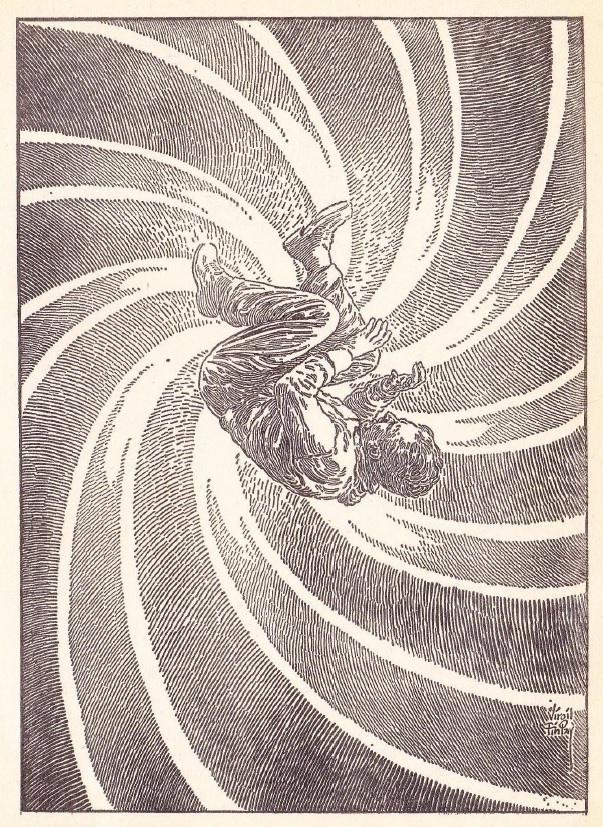
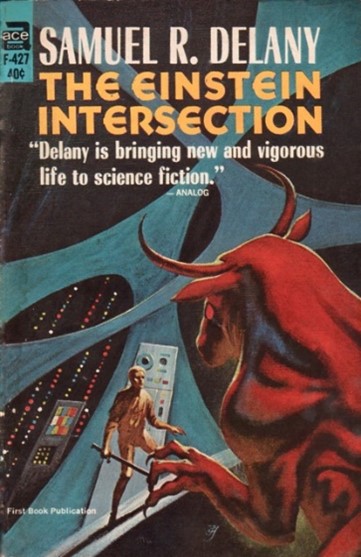
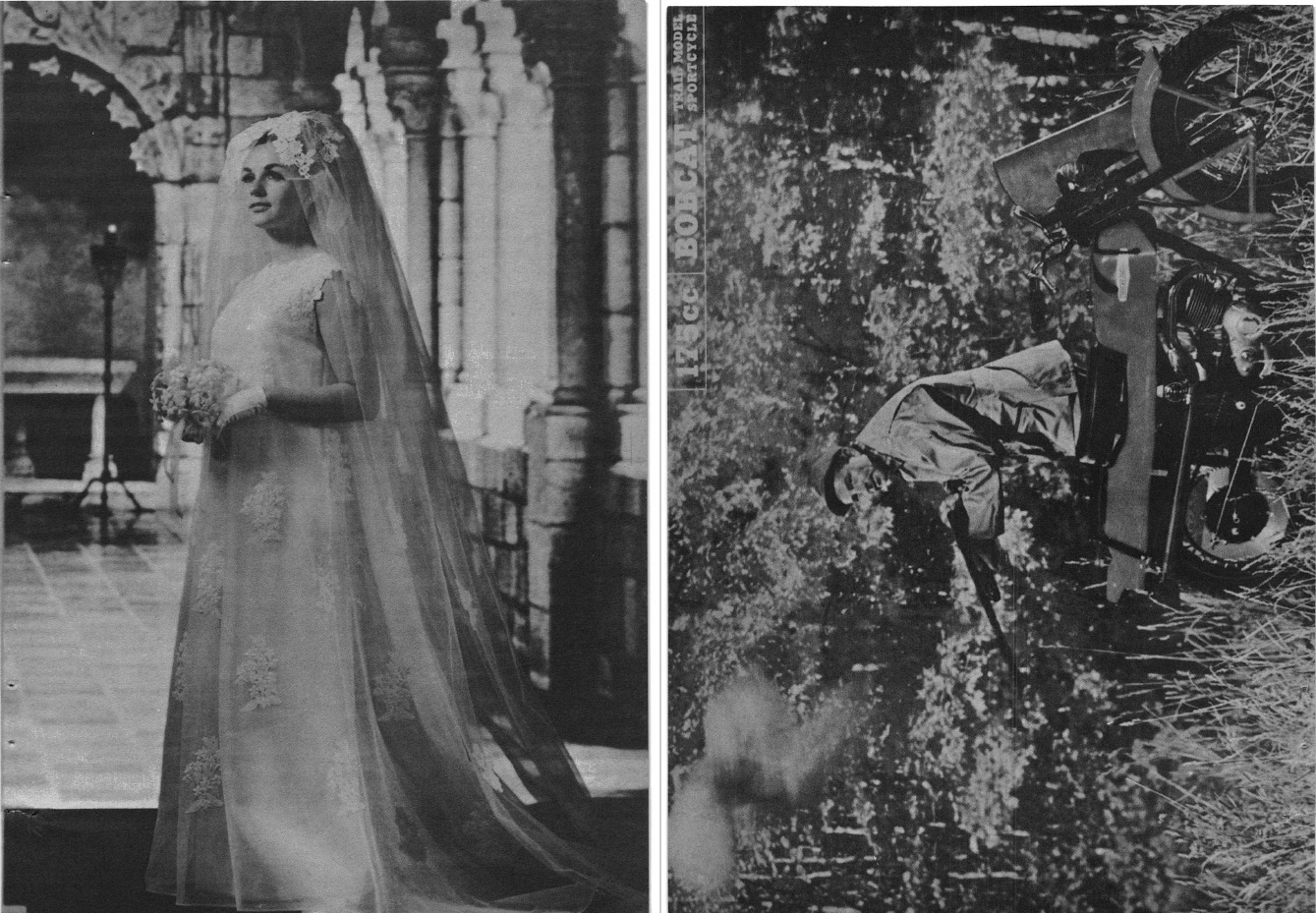
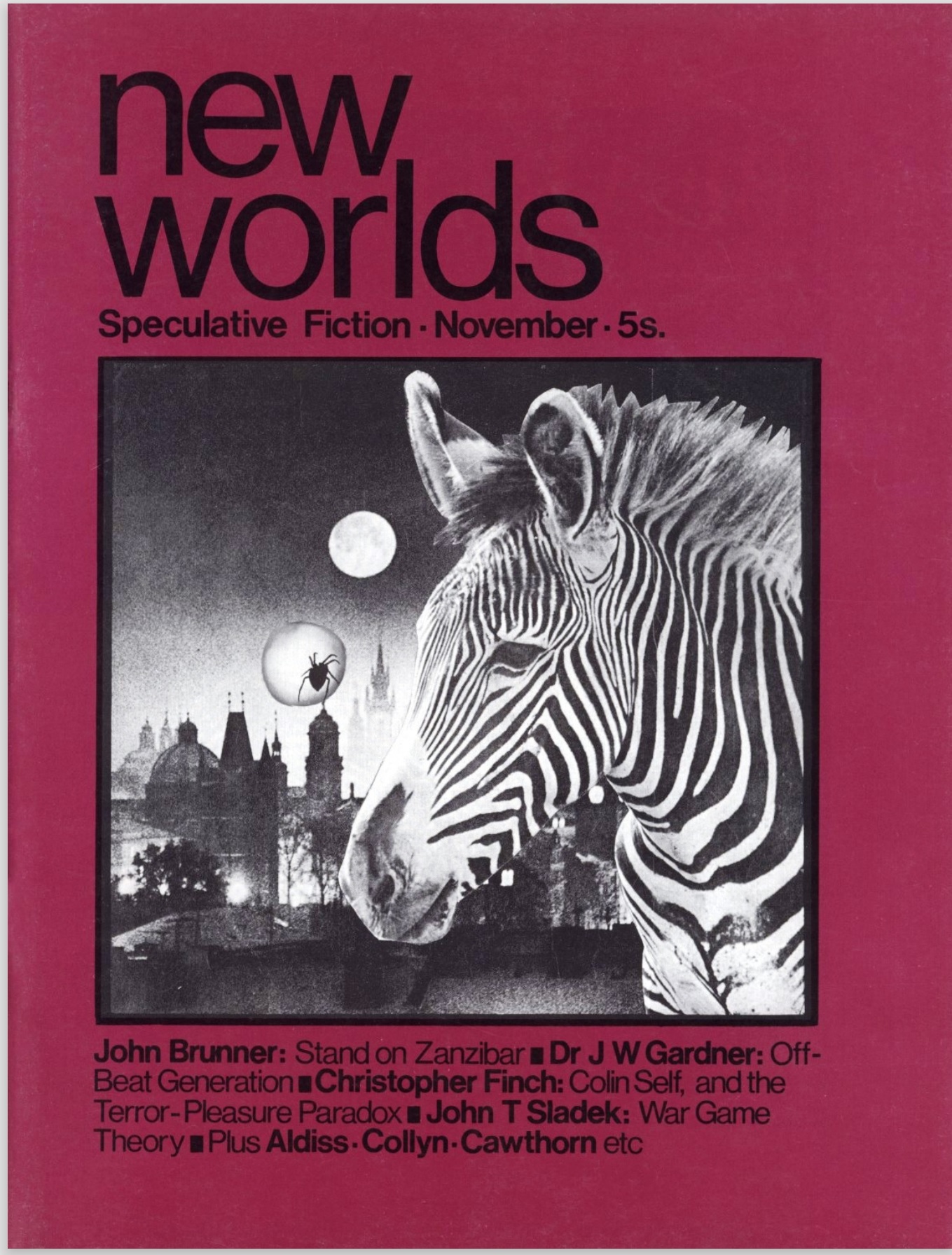
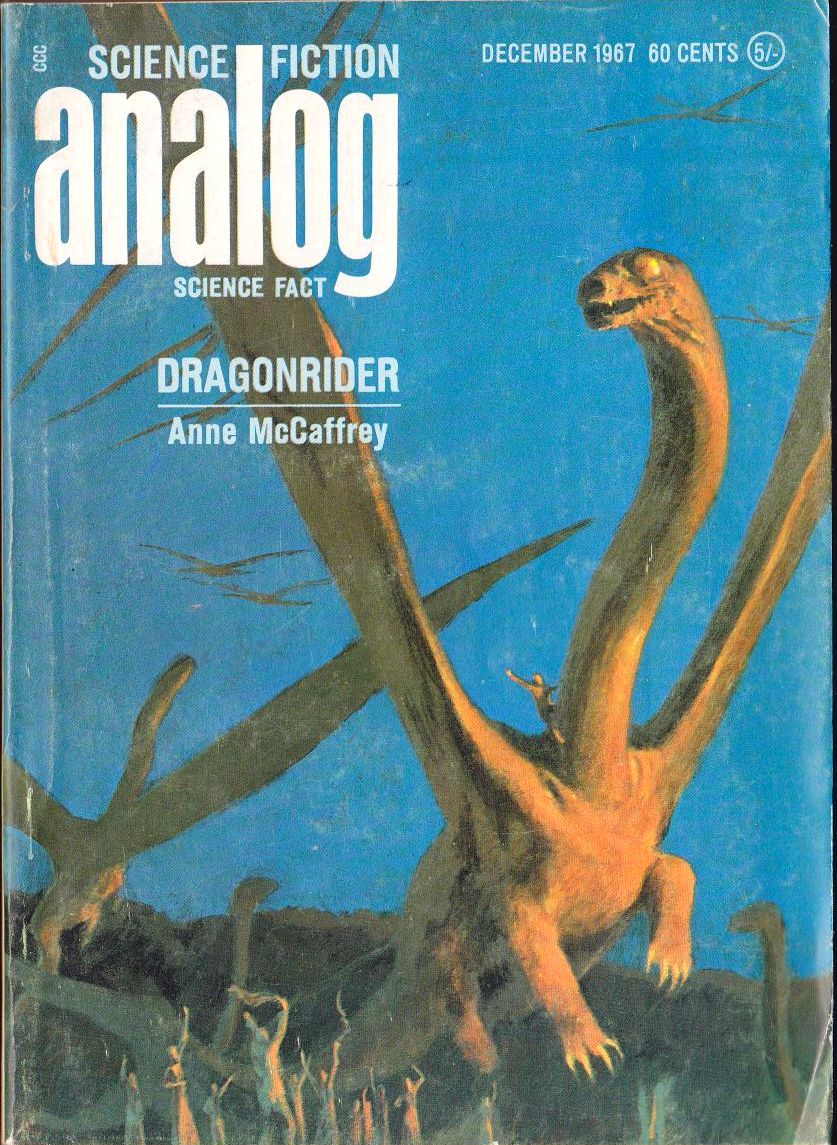

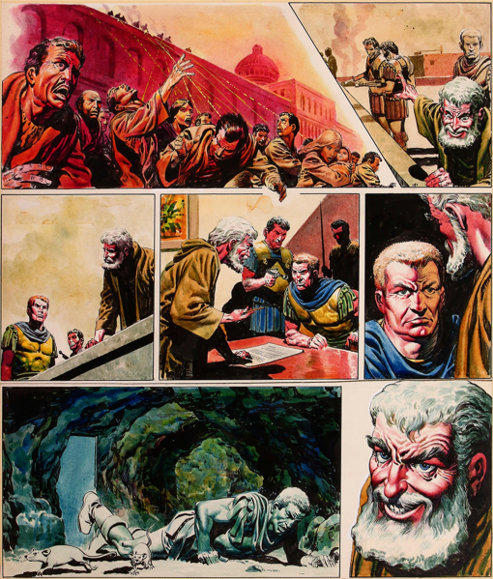
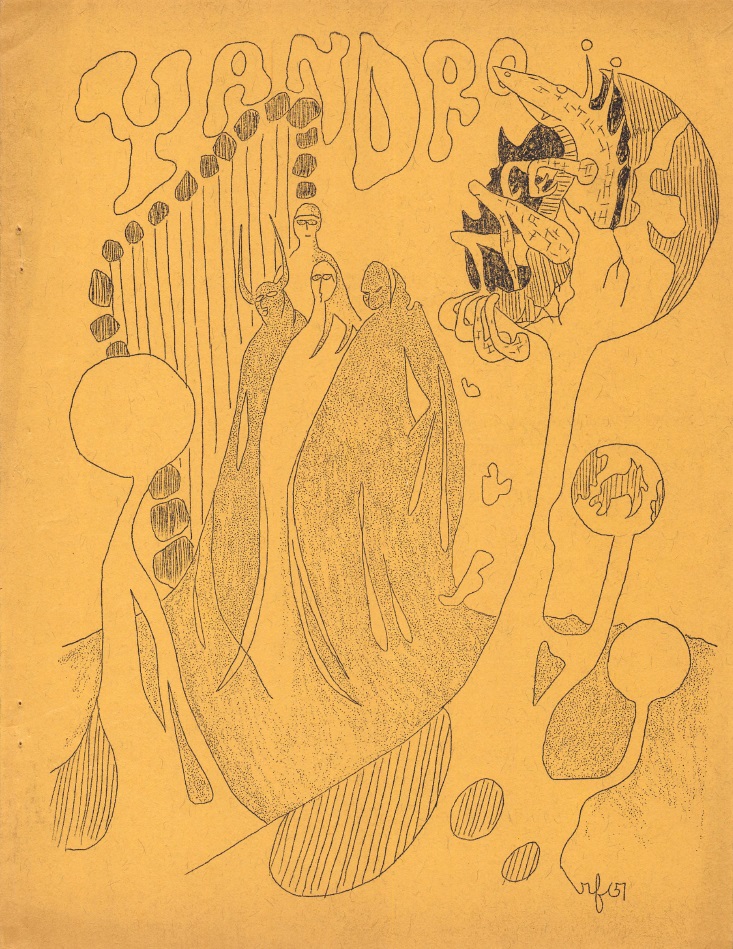
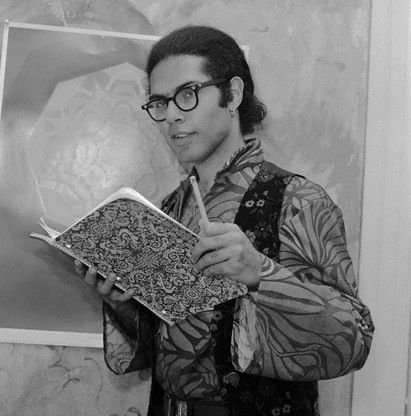
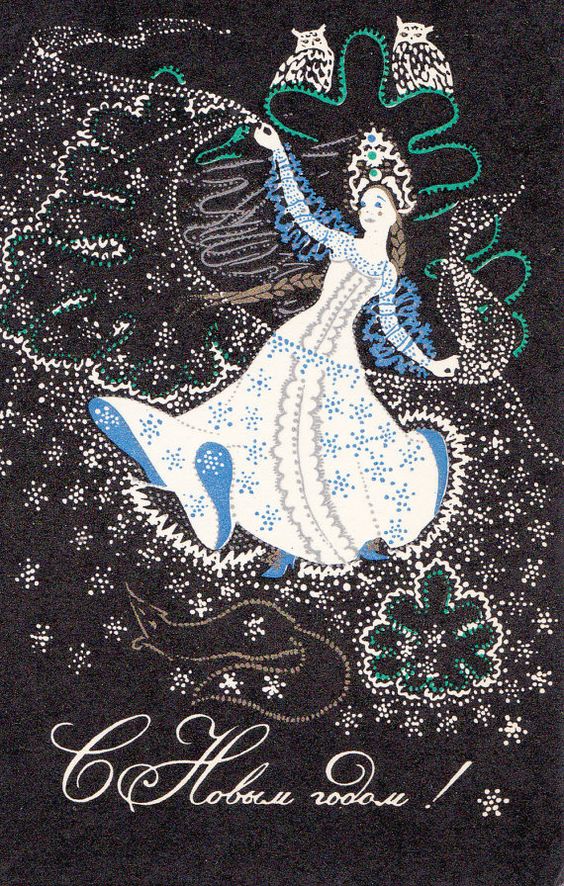
![[December 26, 1966] Harvesting the Starfields (1966's Galactic Stars!)](https://galacticjourney.org/wp-content/uploads/2021/12/661226plough-672x372.jpg)






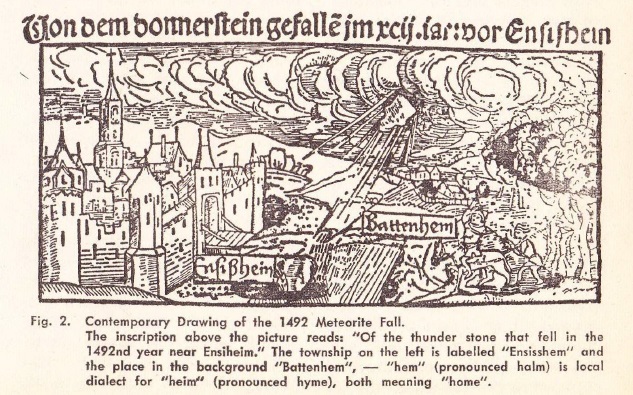




![[Dec. 22, 1965] Swann Lake (the 1965 Galactic Stars)](https://galacticjourney.org/wp-content/uploads/2020/12/651228stars-505x372.jpg)


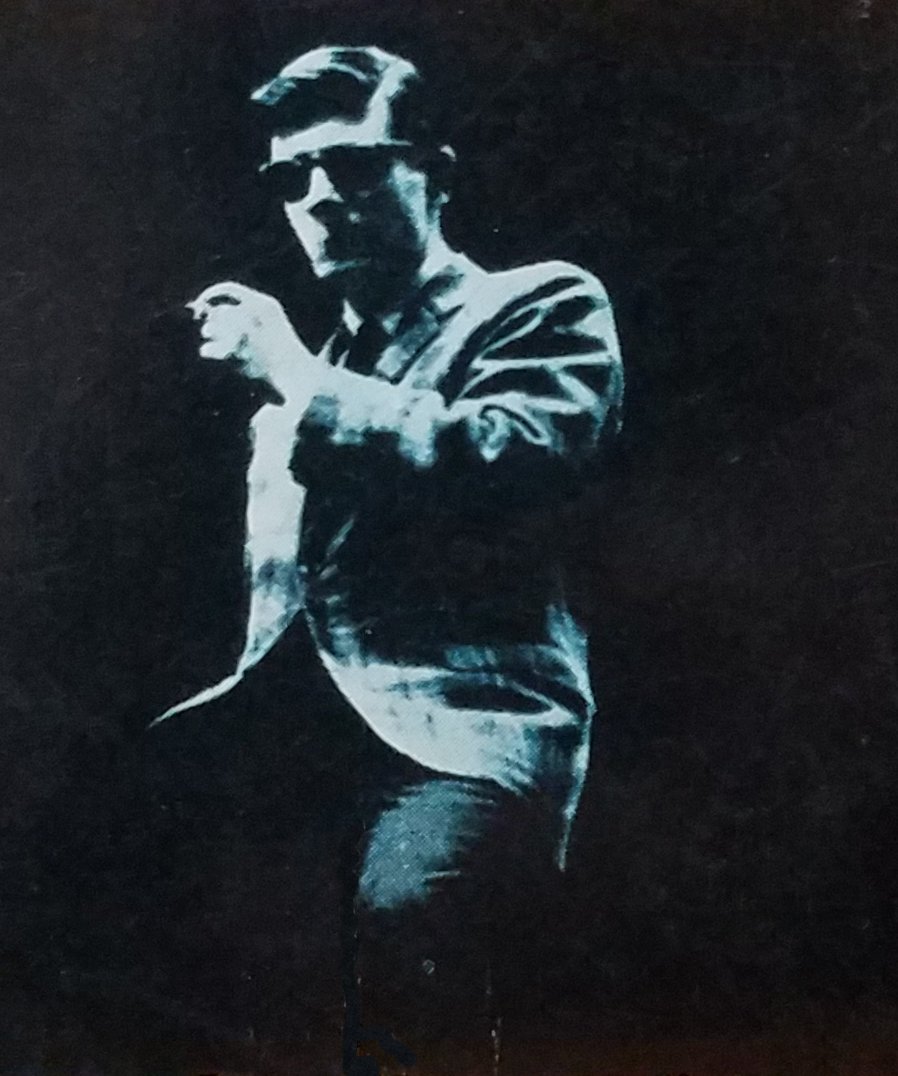


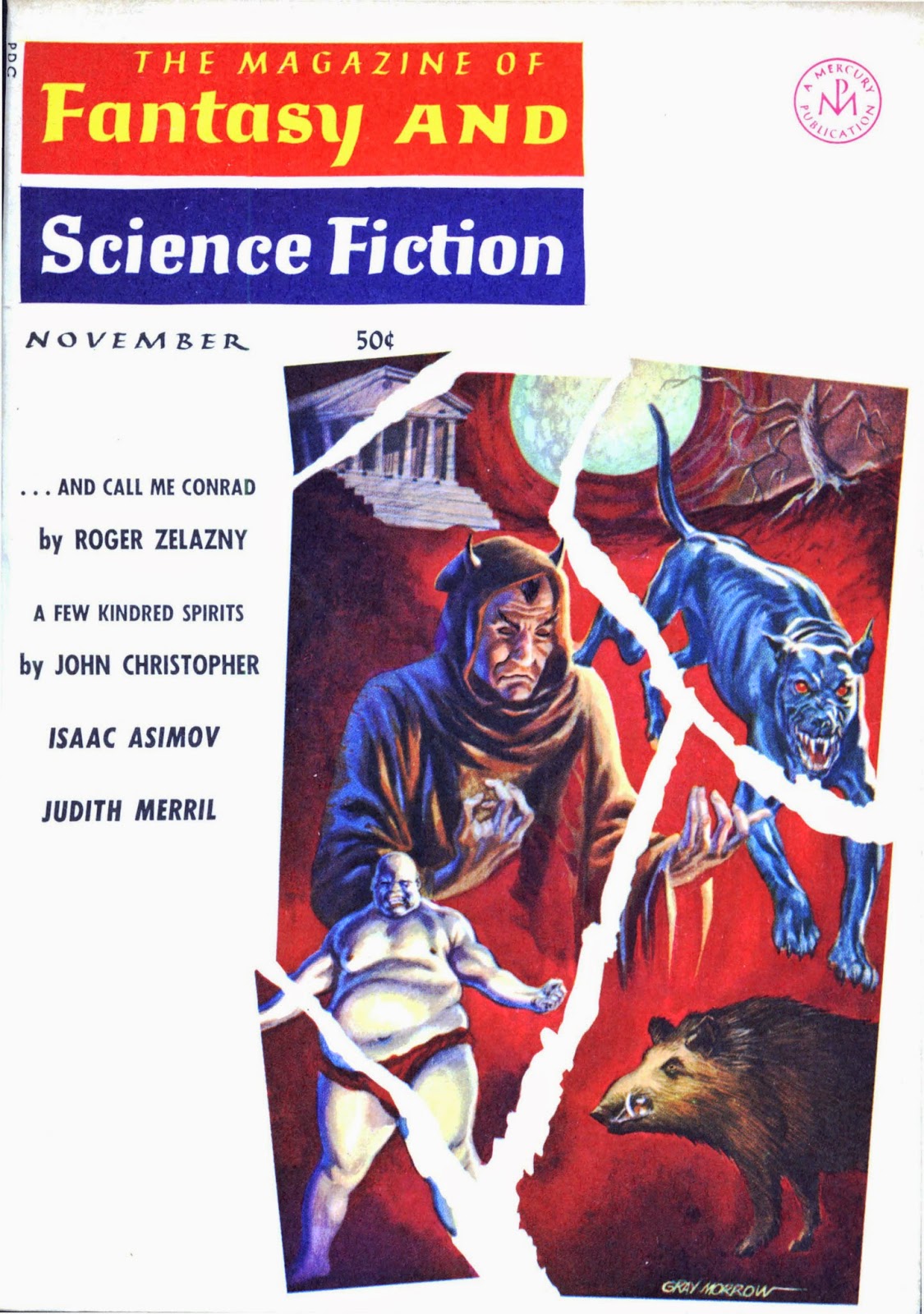





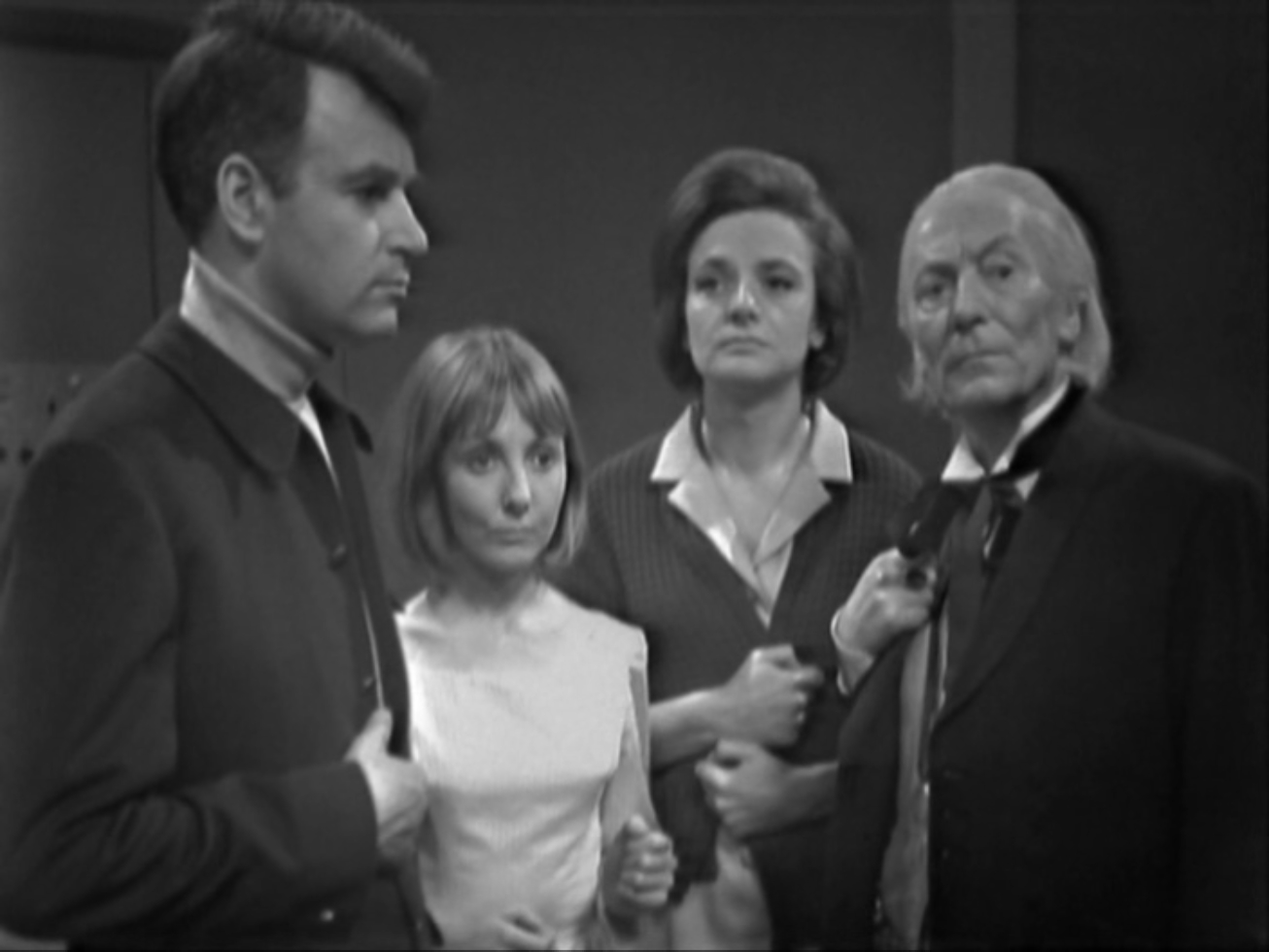



![[December 25, 1964] Stars of Bethlehem and Galactic Journey (Galactic Stars 1964)](https://galacticjourney.org/wp-content/uploads/2019/12/641225star-672x372.jpg)








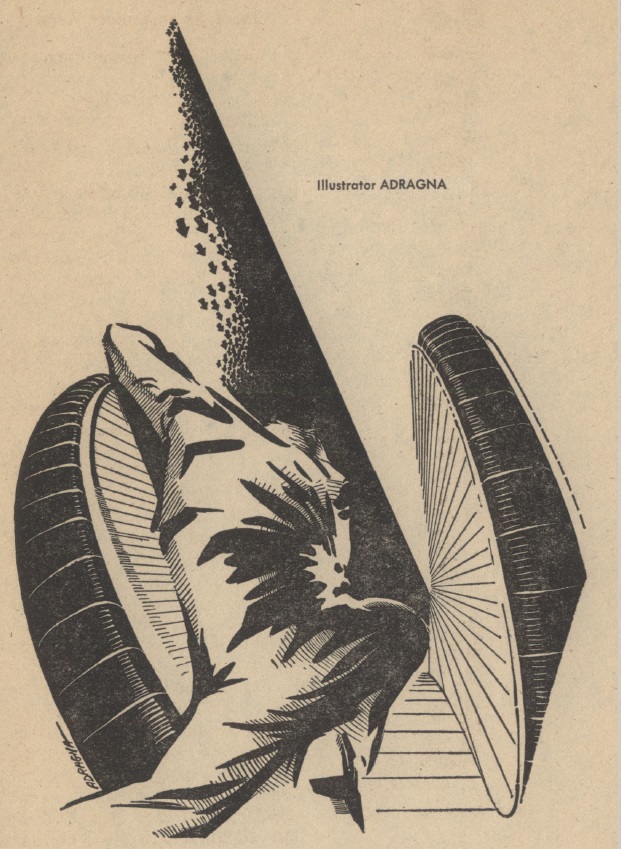





![[December 11, 1963] Count every star (1963's Galactic Stars)](https://galacticjourney.org/wp-content/uploads/2018/12/631211stars-527x372.jpg)


















